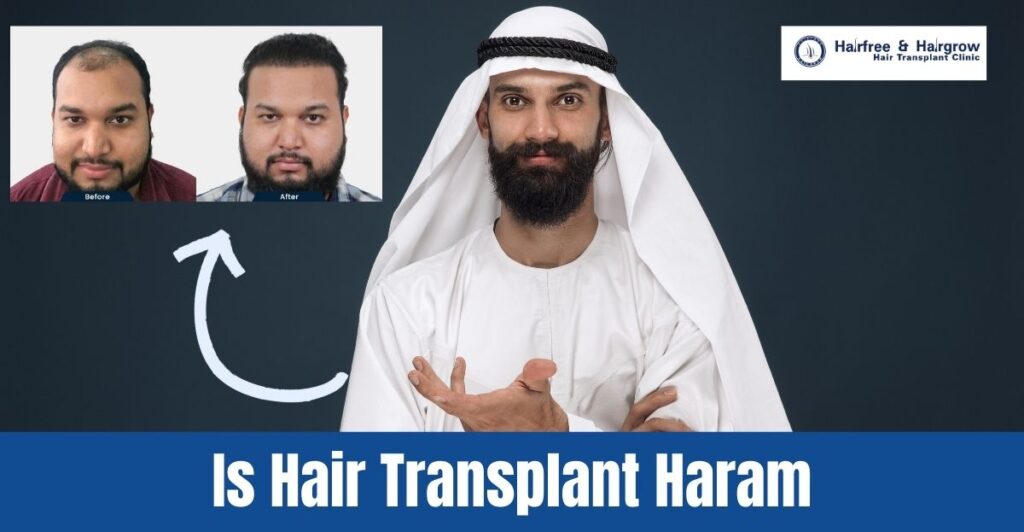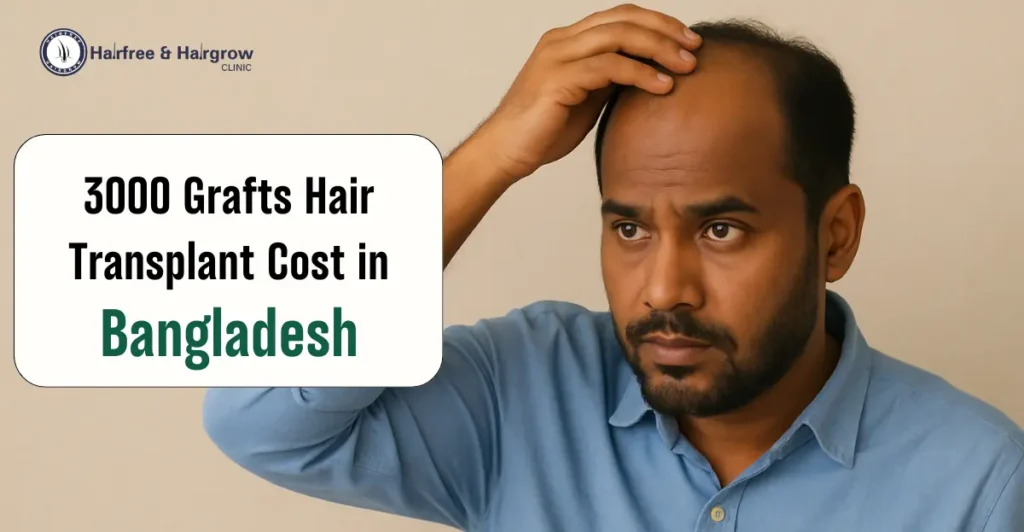Given their popularity, hair transplants have become an enormously popular solution for hair loss, allowing people to revive their hairlines and regain confidence. This can be a big thing for most, and especially significant for sufferers with severe hair loss, like that due to alopecia and genetic predisposition.
However, for Muslims seeking these treatments, the crucial question arises: Is hair transplant haram? The handling of this issue should also be informed from a religious perspective, as well as a clear understanding of the Islamic teaching on this matter.
Table of Contents
Understanding Haram in Islam
In Islamic jurisprudence, “haram” means actions that Allah has forbidden. It is well known among scholars that many procedures in the medical profession tend to be based on the matter of intention.
A haram procedure is one that is done to cure a defect or relieve suffering. Hence the discussion regarding whether Hair transplant in Islam is haram or not is a discussion of what the hair transplant is actually and what its aim is.

Alternatives to hair transplants from Religious Perspectives.
Hair transplant in Islam and the Islamic perspective on hair restoration is primarily a matter of whether or not it is ‘contrary to Islam,’ because whether or not the restoration of one’s natural appearance changes one’s appearance is a debate.
Many scholars agree that any hair transplant is valid as long as it is for real purposes, like curing hair loss through some medical reasons. They say that asking for medical help to regain natural hair does not contradict the principles of preserving Allah’s creation but rather, echoes what they call for seeking a cure for what is diseased.
From this distance, an affirmative answer is given to whether a hair transplant is haram or halal to take this issue of view from the perspective of forbidden materials and vain intentions.
Is Hair Transplantation Halal or Haram?
Many contemporary scholars agree that hair transplantation is usually viewed as halal. The best and most renowned scholars all agree that hair loss and mental health in Islam in a person is a disease for which the procedure is regarded as a valid cure.
The idea behind hair transplantation is that one restores hair and does not degrade the denuded body; that is, it does not leave an area that is free of hair just ‘like that’, which is an issue with other operations, for example, the removal of a pterygium.
But it’s important to stress that motivations matter. Some scholars would consider it haram if it’s just cosmetic or in line with social conventions around such things. It’s about the intent of the treatment—if it’s intended to heal mental health or remedy an instance that results in distress, it is more likely to be seen as acceptable.
From Different Perspectives, the Permissibility of Hair Transplants
The theory of Islamic schools of thought may interpret hair transplant haram or can be permissible differently. Some scholars explicitly permit the procedure, and others remain circumspect.
Hair restoration practices with artificial hair are generally considered impermissible, for instance. Therefore, it is necessary for people planning for hair transplants to talk to Shariah scholars or local imams for a clear understanding of their situation.
Hair Loss and Its Impact
Being hairless affects one’s mental health and self-esteem immensely. Genetic conditions, hormonal changes, and health problems can be common causes of significant emotional distress. Hair loss negatively affects quality of life, and many people with hair loss feel self-conscious and avoid social situations.
When addressing hair loss through medications like transplants, one can see it as restoring your natural state instead of changing it. The importance of further underscoring the fact that regaining hair brings a lot of psychological benefits.
Alternatives to Hair Transplants
If someone is fearful a hair transplant will be haram, there are more ways to go about this that are generally acceptable fromShariaa’s perspective. There can be non-surgical treatments like topical solutions, PRP (platelet-rich plasma) therapy, and herbal remedies, which can give you an effective option to handle the problem of hair fall without going for surgery.
These alternatives, which may better correspond to Islamic teachings, may bring comfort to someone who wants to practice one’s faith but wishes to help alleviate hair issues. For that reason, it would be wise to investigate all possible treatments and speak with reliable sources regarding permitted treatments.
Conclusion
For those Muslims faced with hair loss, the question of whether a hair transplant is a haram is of utmost importance to the answer, and generally speaking, there is a wide general opinion amongst scholars that it is permissible under certain conditions.
Religious perspectives towards the restoration of hair are essential to understanding, as the seeking of that treatment was dealt with differently in Islam.
Ultimately, those who are considering having a hair transplant should focus on what they are hoping to achieve—the psychological benefits of growing their hair back—and keep an eye out for alternative treatments available to reduce the chance of doing any further harm and go with what their mind, conscience, and heart are telling them.
FAQ
According to many scholars, it is permissible to undertake a hair transplant during Ramadan if this does not prevent performing the fast or prayer.
Of course, alternatives like topical treatments, herbal remedies, and minimally invasive therapies are often much more Islamic than surgical procedures.
Absolutely. In Islam, if loss in hair results in psychological distress for the person and it is not the consequence of a medical condition, then hair transplant is generally considered permissible in Islam for the reprieve of one’s natural state.

Written By
Medical Officer & Hair Transplant Surgeon
Dr. Nazmin Sultana Nipa is a distinguished hair transplant doctor in Bangladesh, known for her advanced skills in hair restoration. As a Medical Officer and Hair Transplant Surgeon, Dr. Nipa combines her extensive experience in the field with a focus on transparency and patient-centered care.
Disclaimer
We’ve made all possible efforts to ensure that the information provided here is accurate, up-to-date and complete, however, it should not be treated as a substitute for professional medical advice, diagnosis or treatment. See Detailed Disclaimers Here.



